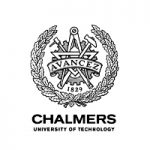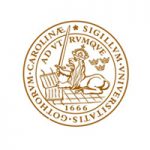项目介绍
In industry, vast amounts of data are generated and stored. Often, this data is used in a straightforward manner; however, due to its sheer volume, existing methods struggle to convert it into meaningful information. This data includes measurements, images, text, recipes, and more. The project addresses the real-world challenge of extracting value from semi-structured textual data, a problem not only faced by industry (e.g., steel, catalysts, metal structures) but also by academia and public services (e.g., archives, museums). The broader question that this project addresses is how we can extract information from this data to support decisions, such as the design of new materials. To make progress on this challenge, this project will combine efforts from 3 PhD students:
PhD1: Will develop models that can read, extract and acquire knowledge from legacy data, coming both in the form of text and in the form of structured data (e.g. physical measurements) to predict characteristics of new steel grades. To this end we will design agentic multi-modal models, whose components will be trained on legacy data, and which can be queried to provide a prompt-based summarization of relevant legacy data, both in the form of text and quantitative predictions.
PhD2: Will develop models for inverse design of new steel grades. The methods will combine existing models for forward simulation with new methods for inverse design, i.e. identifying design parameters that achieve desired characteristics. In the later phases of the project, the specific goal will be to explicitly leverage predictions from information extraction models to navigate the design space.
PhD3: AI-guided Experimental Identification and Validation: This is an experimental PhD candidate who will work on making new materials of desired properties. The candidate will also study the structure of these new materials by different experimental techniques and also will verify model predictions as and when they are available.
This is what you are going to do
As part of this project, the PhD candidates will develop modelling and experimental approaches for production of sustainable steel materials in collaboration with academic and industrial partners.
You will/tasks:
PhD1:
- Understand the problem of designing materials and the role prior experimental data play.
- Understand the challenges of working with legacy data and devise a research plan of how these challenges affect ML models.
- Develop models for relevant knowledge-intensive tasks (e.g. information extraction, summarization, reasoning, generation) on legacy data.
- Develop appropriate benchmarks and evaluation metrics to assess the developed models.
- Write a thesis consisting of four published articles in the fields of Information Retrieval, Natural Language Processing and Machine Learning.
- Work closely with the other PhDs and researchers on the project towards reaching the overall research goal.
- Contribute to educational activities (e.g. provide lectures, assist teachers, supervise theses).
PhD2:
- Work with partners to understand existing models for forward simulation, as well as characteristics and requirements in the design of new steel grades.
- Develop methods for “inverse” design based on forward models, as well as more recent hybrid models.
- Work closely with the other PhDs and researchers, specifically by models developed by PhD1 into methods for inverse design.
- Contribute to educational activities (e.g. serving as a teaching assistant, and supervising theses).
PhD3:
- Planning of the work in consultation with supervisor and consortium partners.
- Conduct experiments in the lab for the materials production, characterization and application in collaboration with other consortium partners.
- Reporting the progress and the results to the supervisor, funding agency, consortium and dissemination of the results in peer-reviewed journals and conferences etc.
- Contribute to educational activities (supervising the students and teaching duties as stipulated by the group/institute).
This is what we ask of you
PhD1: A MSc degree in Artificial Intelligence, Data Science or Computer Science; good engineering skills; affinity with AI. Experience in NLP/IR is a plus. Experience in conducting research is also a plus.
PhD2: A MSc degree in artificial intelligence, computer science, physics, chemistry, or related fields. Affinity with ML and AI methods is essential and experience with computational methods in the physical sciences is a plus. Experience conducting research (e.g. as part of an MS thesis) is also a plus.
PhD3: A recent Master’s degree in Materials Science/Engineering, chemical engineering, applied chemistry, mechanical engineering or related field. Practical experience in materials synthesis and characterization.
For all positions:
- Good communication skills in oral and written English.
- Takes initiative and has good time management skills.
- Interest in collaborating with students and colleagues within and outside the institute.
- Willingness to approach the problem creatively and critically.
- Willingness to meet the dead-lines.
- Experience in participating a research project is desirable.
- Interest in sustainability, passion for research and motivation to help the society through your research.
- Knowledge of computational chemistry is desirable.
- Experience in analytical techniques is desirable.
This is what we offer you
A temporary contract for 38 hours per week for the duration of 4 years (the initial contract will be for a period of 18 months and after satisfactory evaluation it will be extended for a total duration of 4 years). The preferred starting date is as soon as possible. This should lead to a dissertation (PhD thesis). We will draft an educational plan that includes attendance of courses and (international) meetings. We also expect you to assist in teaching undergraduates and master students.
The gross monthly salary, based on 38 hours per week and ranges between € 2,901 (1st year) to € 3,707 (last year), scale P. This does not include 8% holiday allowance and 8,3% year-end allowance. The UFO profile Promovendus is applicable. A favourable tax agreement, the ‘30% ruling’, may apply to non-Dutch applicants. The Collective Labour Agreement of Dutch Universities is applicable.
Besides the salary and a vibrant and challenging environment at Science Park we offer you multiple fringe benefits:
- 232 holiday hours per year (based on fulltime) and extra holidays between Christmas and 1 January;
- multiple courses to follow from our Teaching and Learning Centre;
- multiple courses on topics such as leadership for academic staff;
- multiple courses on topics such as time management, handling stress and an online learning platform with 100+ different courses;
- 7 weeks birth leave (partner leave) with 100% salary;
- partly paid parental leave;
- the possibility to set up a workplace at home;
- a pension at ABP for which UvA pays two third part of the contribution;
- the possibility to follow courses to learn Dutch;
Are you curious to read more about our extensive package of secondary employment benefits, take a look here.
联系方式
电话: +31 (0)20 525 1400相关项目推荐
KD博士实时收录全球顶尖院校的博士项目,总有一个项目等着你!





